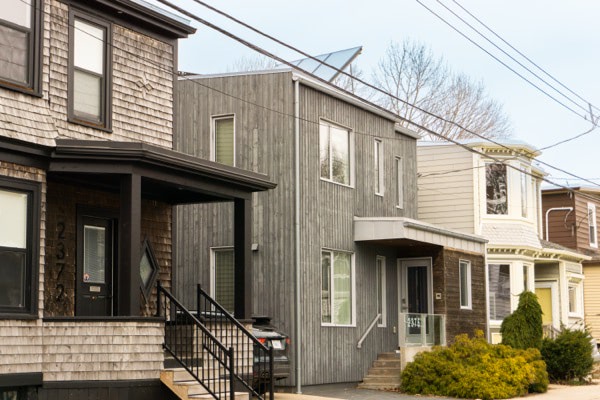Considering summer home renovations this year? Here are some home improvement and green energy projects to take on!

Basic financial terms that help you understand the market
It’s no secret the real estate market can be confusing. Especially in today’s climate and for those with no experience buying or selling, getting involved in the market is stressful. To add on to the confusion, some of the financial terms associated with the market might not make sense to a lot of people. Terms like prime rate and amortization are commonly thrown in the real estate world, and maybe you’re finding it hard to keep up. If that’s the case, don’t worry!
Whether you’re trying to buy a home, refinance, or just understand the market better, you might benefit from a quick refresher on some basic terms. Here are some of the most common terms you might hear, and you can find additional information here!
Inflation
Inflation refers to price changes — specifically price increases — over a period of time. The higher the inflation rate, the more prices will rise at a faster pace. When prices inflate, the Canadian dollar decreases in value because one dollar will buy less than it could before.
Inflation is important to remember for long-term budget plans. Big expenses won’t be the same price in the future as they are today, so you need to budget for future expected prices. For example, the inflation rate increased 0.72 per cent from 2019 to 2020. If you were planning a big expense for 2020 but were relying on 2019 prices, you’d have found yourself coming up short.
Overnight rate
The overnight rate is one of those financial terms you might hear a lot, but aren’t quite sure what it means. This rate is decided by the Bank of Canada, and it’s the interest rate big banks use to trade with one another. There are eight fixed dates every year where the bank announces whether or not the rate will change, as it affects prime rate and other interest rates.
The overnight rate is currently sitting at 0.25 per cent, where it’s expected to stay for a while as COVID-19 economic recoveries continue in Canada.
Prime rate
The prime rate is set by banks, but it depends on the overnight rate set by the Bank of Canada. The five big banks often have the same prime rate — the exception right now is TD Bank, which has a slightly higher prime rate. Prime rate determines variable interest rates for mortgages. A borrower with a variable-rate mortgage will find their rates increasing or decreasing alongside the prime rate.
The prime rate sits at 2.45 per cent right now (2.60 per cent for TD Bank).
High-ratio mortgage
A high-ratio mortgage is another one of those financial terms we see and hear quite a bit. This is a purchase that has less than a 20 per cent down payment, meaning there is a high loan-to-value ratio (for example, 90 per cent mortgaged and only 10 per cent paid down). Lenders see these mortgages as a higher risk, since the down payment is small and a default on the remaining mortgage amount seems more likely. High-ratio mortgages require mortgage default insurance, sometimes just called CMHC insurance. This protects the lender in case of a default, and these insurance costs are usually rolled into the mortgage.
Stress test
The stress test is the amount or rate borrowers need to qualify for when getting a mortgage. It’s been sitting at a rate of 4.79 per cent recently, meaning Canadians need to prove their home buying abilities to handle a mortgage with a 4.79 per cent interest rate or two per cent above the contract — whichever is higher. The goal is to make sure buyers with over 20 per cent down payments could afford their mortgage payments in the event of an interest rate increase. This can lead to some Canadians not being able to afford as much if they’re not able to meet these test requirements.
There has been a proposed change to the stress test level to increase it to 5.25 per cent, or two per cent above market rate — again, whichever is higher. This will mean borrowers will have to meet even stricter guidelines for buying a home. It’s important to note this proposed change will only affect conventional mortgages, and not high-ratio mortgages.
Unconditional offer
An unconditional offer is an offer on a home without any conditions attached. For example, the buyer might not need to sell their existing home first, or doesn’t require a home inspection. These offers are binding, and put the buyer in a place where they agree to buy the home they’re putting an offer on no matter what. While these offers appeal to sellers, they can be risky for buyers. The buyer stays on the hook and can’t back out of these offers, making them a potentially challenging strategy.
Amortization
Amortization is simply the time period of your loan, or the length of time you have to fully repay your mortgage. You pay this off through instalments with interest, and you should be clear on your timeline when you secure a mortgage. Since mortgages take a long time to pay off, the average Canadian amortization period is 25 years.
ROI
Finally, ROI, or return on investment, is the amount you get back on an investment compared to what you spent on it. This tells you how well your investment performed and whether you made smart decisions during the investment period. To calculate the ROI of your home, you need to take into account your down payment, mortgage costs, taxes, and utilities.
There’s a lot to understand about finances and the real estate market, but understanding these financial terms will help you get a grasp on the basics. If you have questions about buying a home or refinancing, get in touch with us at Clinton Wilkins Mortgage Team! You can call us at (902) 482-2770 or contact us here.


